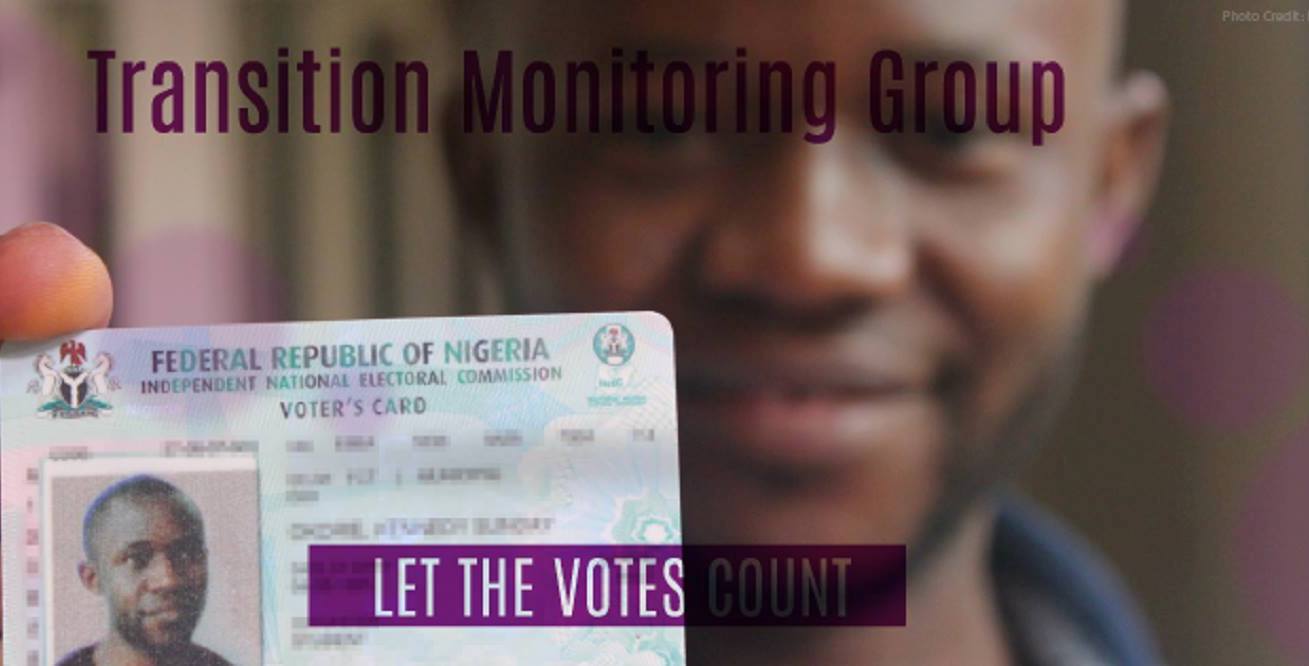The Nigerian civil society’s main election disciplinary platform – the Transition Monitoring Group, (TMG), might have, at last, run out of patience with the pace, quantity and quality of dividends of democracy and sustainable development to the people in Nigeria. Indications to this effect are hanging out for all to see in its renewed declaration of intent to compel the electoral process to deliver dividends it says are currently lacking in Nigeria and resulting in Nigerians increasingly losing confidence in the electoral system. It attributes to the electoral system malpractices, manipulation, violence, commercialization and privatization of political parties and political offices for self-centred interests.
This new commitment to electoral oversight is one of several key areas of emphasis the newly elected board of the TMG is pushing out. The others include reforming and institutionalizing internal democracy in Nigeria’s political parties, a process that may involve intense observation of party conventions by TMG; engage in massive voters’ education for popular immersion and ownership of the process; saturating the citizenry with details on the Continuous Voters’ Registration process as it relates to their rights and consequences of succumbing to political manipulations from politicians and their agents; a more detailed and systematic observation of the internal democratic processes of political parties as well as the conduct of security personnel, politicians and political parties during elections; a more critical attitude to election litigations, with a view to blocking what it suspects is a rising case of using the courts to block the smooth turning of the democratic wheel
Using the change of guards at TMG recently, the new leadership told a news conference in Abuja that the transition watchdog “is determined to redefine its values and identity to complement the existing work of other groups working on elections by focusing more on observing how election delivers good governance” according to Mallam Auwal Musa Rafsanjani, the new helmsman, the body will also make a deliberate effort towards ensuring that the electoral process delivers dividends of democracy and sustainable development to the people which is lacking in Nigeria.
Doing its best in advocating for electoral transparency and accountability by mobilizing Nigerians to demand positive change in our electoral process, he said, is the new minimum, a significant hint in view of the incoherence of the stakeholders of democracy in contemporary Nigeria.
The civil society disciplining dimension has, obviously been missing from Nigerian democracy and the list of TMG activities towards achieving that would be good music to quite many.
Civilian rule in 1999 could be traced to series of street actions and rugged articulatory politics as in the framing of the crisis in terms of authoritarianism and arbitrariness. Subsequently, however, many civil society players appear to have lost out and hence the virtual discursive anarchy unfolding in the society today.
TMG would, therefore, be in the eye of many observers!




























